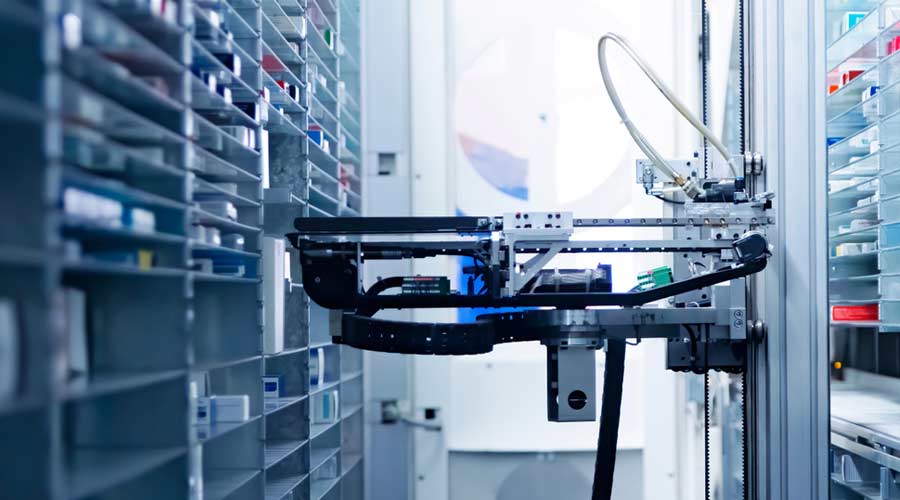Since 2021, over 47 million Americans have quit their jobs, according to ABC News. While there are numerous reasons that more people are resigning at rapid rates, one of the most cited reasons is burnout.
As industries struggle to recruit and retain new employees, many organizations are turning to emerging technologies that can more easily fill in the gaps while they wait for new talent. While this is an innovative way to keep operations moving, many people are apprehensive when it comes to such software and technology, due in part to the fear of automation replacing human workers.
“Introducing new technology into a large-scale, non-stop operation like healthcare facilities management is no easy task,” says Aaron Chau, product manager with OhmniLabs. “Facilities managers do not sleep, so when something new is brought into a non-stop operation, there isn’t a lot of room for pause or error. When automation is introduced, it’s often through high-tech innovations that aim to streamline some part of the workflow. This could be anything from automating data capture in a work management software to automating deep disinfection following a terminal clean. Regardless of the introduction, the need for ease of use is standard across the industry. High-tech must be developed for low-tech environments in order to best service and scale facilities management operations.”
Once new technology is introduced, it is up to the managers to ensure it enables them to work more efficiently and reduce the number of errors, injuries and time-consuming fixes. Emerging technologies provide a low operations burden and accessibility to a fast-paced team that require solutions in a moment’s notice.
“There are many benefits that robotics provide facilities managers,” says Dennis Collins, senior global category manager – robotics with Tennant Co. “A great one is the data the machines capture. Autonomous cleaning robots will capture data like how much time was spent cleaning, where did the machine clean and when did the machine clean. A facility manager can use this data to look at trends and see if there is anything to improve. Once a facility deploys a robotic feature, the staff’s position is elevated, and they are now a robot operator.”
Technology is continuing to transform industries that were once impossible to comprehend in a pre-COVID-19 world. Clients can receive real-time updates on how their facilities are operating, minimizing disruptions. In addition, this client-centered thinking has been driving technological advancements so more facilities managers feel comfortable implementing them within their buildings.
“Automation allows facilities managers to be innovation leaders through technology but also optimizing their process flow,” Collins says. “By implementing automation, staff can do other value-added tasks, like cleaning high-touch surfaces while a robot cleans the floors. I think we are going to see the adoption of robotics continue to grow across multiple industries. It’s no secret that employers are having a hard time hiring and retaining employees.”
Automation needs to work in tandem with employees. The only way technology can succeed is if a human is behind the scenes monitoring it. The future of technology relies on collaboration. Whoever can tie the two fields together will set new standards for facilities management.
“Technologies that successfully automate operations allow lower-level functions such as reporting, record-keeping, inventory tracking, or disinfection to be run on autopilot, and allow staff and management to dedicate their thinking to more important tasks,” Chau says. “New tech is more interesting to facility management teams now more than ever. Simultaneously, vendors are displacing existing solutions that failed to hold up under pandemic pressures. Automation will continue to play an important role in facility management, working alongside human operations to provide reliable and repeatable results.”
Mackenna Moralez is the associate editor for Healthcare Facilities Today

 UF Health Hospitals Rely on Green Globes to Realize Their Full Potential
UF Health Hospitals Rely on Green Globes to Realize Their Full Potential How Healthcare Facilities Can Be Truly Disaster-Resilient
How Healthcare Facilities Can Be Truly Disaster-Resilient TriasMD Breaks Ground on DISC Surgery Center for San Fernando Valley
TriasMD Breaks Ground on DISC Surgery Center for San Fernando Valley Bigfork Valley Hospital Falls Victim to Data Breach
Bigfork Valley Hospital Falls Victim to Data Breach AI-Driven Facilities: Strategic Planning and Cost Management
AI-Driven Facilities: Strategic Planning and Cost Management